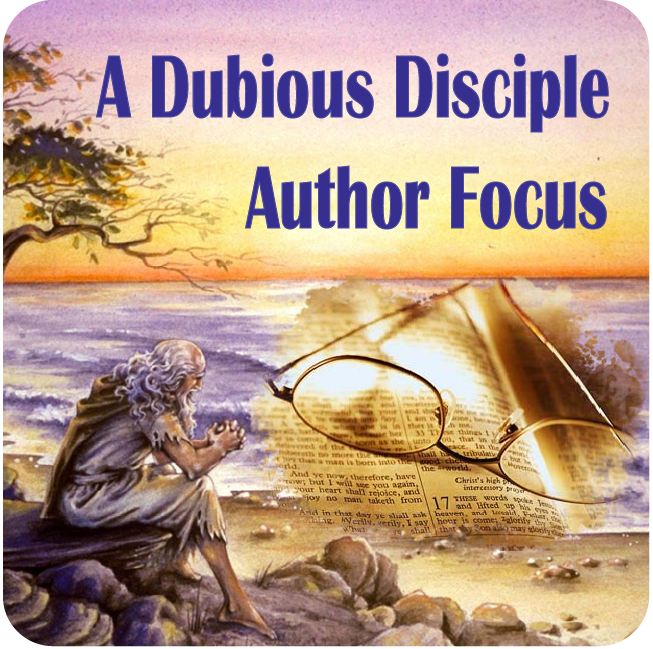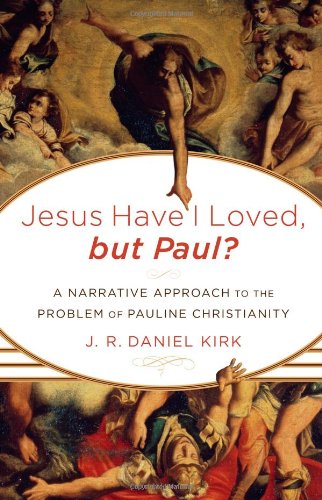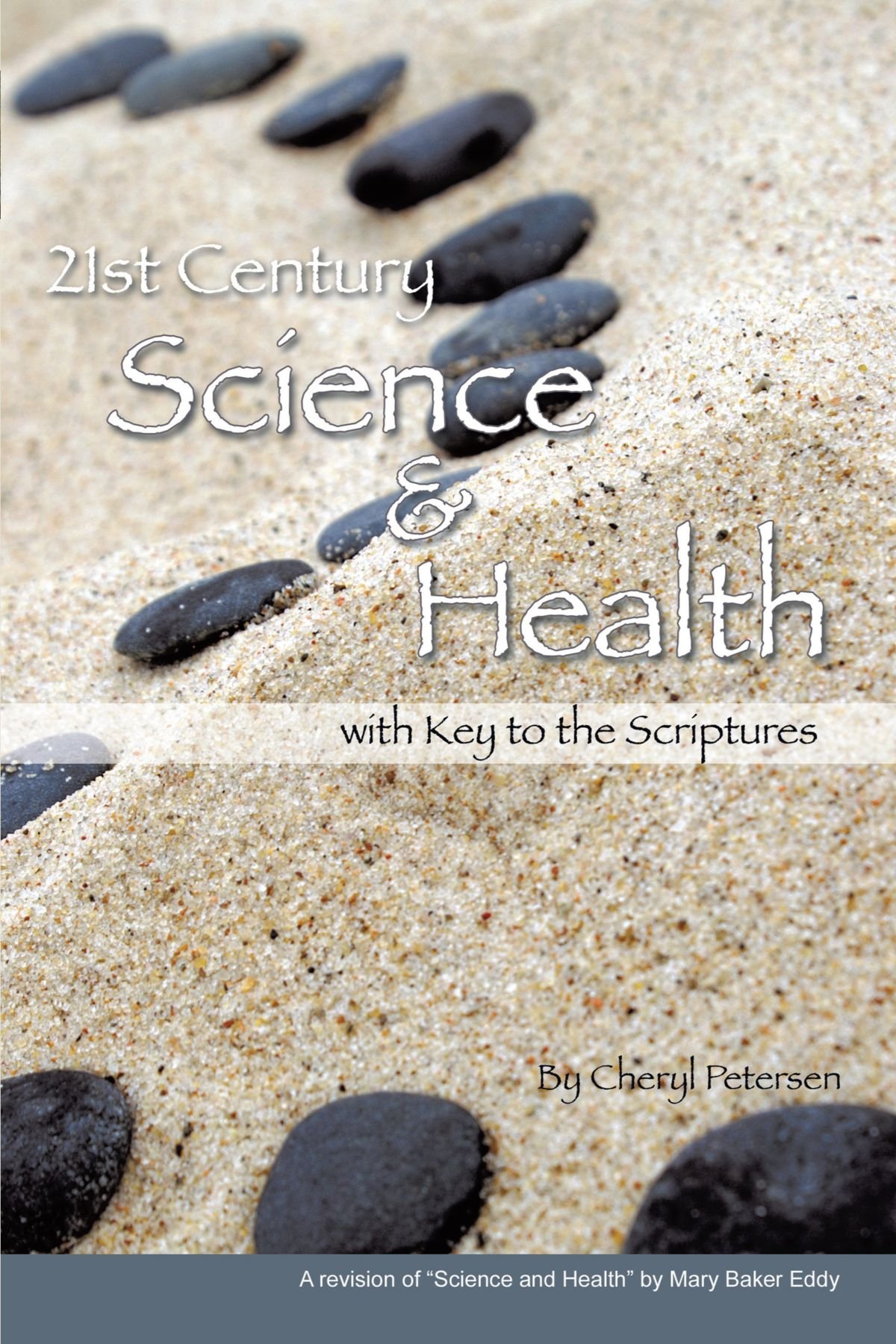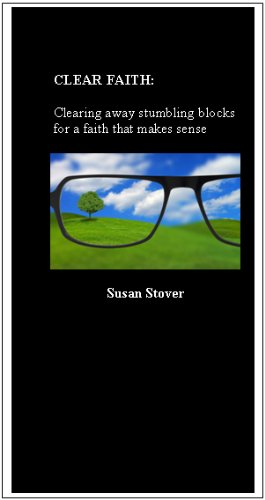Daniel 9:24, Counting down to the Messiah, I of III
Seventy ‘sevens’ are decreed for your people and your holy city to finish transgression, to put an end to sin, to atone for wickedness, to bring in everlasting righteousness, to seal up vision and prophecy and to anoint the most holy.
//Today’s topic stems from N. T. Wright’s new book, How God Became King. Daniel actually says “Seventy weeks” in his prophecy, but most people (such as the NIV translation quoted above) recognize this to mean seventy times seven (490) years. That’s how long it will take, according to Daniel, before the Messiah arrives and sets things right.
Today’s readers may recognize seven as a sort of special number, but it meant far more to Bible readers in Daniel’s day. The seventh day is the Sabbath. The seventh year is a sabbatical year. Every seven-times-seven years is declared a jubilee; slaves are freed, land sold off by the family is restored to its original owner, everything returns to the way it belongs.
Daniel’s promise sounds very much like a jubilee of jubilees! Wait four hundred ninety years, says Daniel, and God will set things right once and for all!
Now, let’s carry this topic a little further than Wright does. If we count 490 years from the date the Jews returned from exile and began rebuilding the temple according to the decree of Artaxerxes (457 BCE) we arrive at the year 33 CE … the year many believe Jesus died. Pretty amazing, huh?
We’ll look at this from another angle tomorrow, and see if it’s really as amazing as it appears.
Book review: Jesus Have I Loved, but Paul?
by J. R. Daniel Kirk
★★★★★
This one gets off to a bit of a slow start, but finishes strong. With an enigmatic subject like Paul, and a provocative title like this one, I expected a more pointed discussion. It’s only when we reach the midpoint that the really controversial topics emerge: women’s role in the church, slavery, homosexuality, marriage and divorce, etc.
Kirk begins his book by confessing his early ambivalence toward Paul. Only after much study, and by recognizing that Paul’s teachings and Jesus’ teachings do steer toward one another, did he come to appreciate Paul’s slant. This acceptance appears to have come at a cost: Kirk began to realize that not only did Paul tend toward Jesus in his teachings, but Jesus tended toward Paul!
For example, Jesus says we should not judge one another. But is that the whole story? Worry about the log in your own eye, and ignore the speck of dust in your neighbor’s? Hardly. Jesus says get the log out of your eye so that you can see to help your brother get rid of his problem. If we condemn Paul for encouraging what looks like strict judgment of others (1 Cor. 5:12-13), we should remember Jesus’ admonition to recognize others by their fruits and beware.
Paul may best be understood under the lens of Storied Theology. By telling the story of mankind, from Adam and Eve through Paul’s day, he fits the Gentiles into the cosmic plan of God. He brings non-Jews into the fold, makes them feel like they belong, and defines their role as full participants.
Kirk writes as a studied believer, meaning his perspective is most definitely that of a practicing Christian, yet he’s been around the block long enough to realize that every question about the Bible has a dozen scholarly answers … half of them legitimate. For example, Kirk acknowledges that many of the Pauline letters may be pseudonymous, and he focuses more intently on the universally recognized authentic letters, yet he doesn’t press the issue.
Kirk doesn’t sit on the fence when it comes to interpreting the words of the Bible, though. Paul doesn’t pull punches, and neither does Kirk. Still, this is a respectful and thought-provoking book.

Luke 19:26-27, Killing the Unfaithful
“He replied, ‘I tell you that to everyone who has, more will be given, but as for the one who has nothing, even what he has will be taken away. But those enemies of mine who did not want me to be king over them–bring them here and kill them in front of me.'”
//Today’s verses conclude Jesus’ parable about the nobleman who went away into a far county, and left silver pieces to ten slaves. One of them was unfaithful, and didn’t invest the money to earn more. From this unfaithful servant, the nobleman takes even the one silver piece that he has and gives it to another.
Then Jesus concludes the parable with this lesson: If you don’t want me to be king over you, then come here and die in front of me.
Harsh, eh? What is Jesus talking about? The answer lies just a few verses later, when we realize this parable has been a lead-in to Jesus’ arrival in Jerusalem. As Jesus tops the Mount of Olives and looks down on Jerusalem, he weeps over what is to be their fate:
As he approached Jerusalem and saw the city, he wept over it and said, “If you, even you, had only known on this day what would bring you peace–but now it is hidden from your eyes. The days will come upon you when your enemies will build an embankment against you and encircle you and hem you in on every side. They will dash you to the ground, you and the children within your walls. They will not leave one stone on another, because you did not recognize the time of God’s coming to you.” –verses 41-44.
This, of course, happened 40 years later in the war of 67-70 CE when the Romans overran Jerusalem. In Luke’s parable, Jesus is looking ahead to the destruction of Jerusalem and warning his listeners that if they cannot accept him as king, they will soon be slaughtered.
Focus on the Author: Cheryl Petersen
Author of 21st Century Science and Health
//I hope to mix in the occasional author bio, or perhaps an author’s personal motivation/inspiration for writing a book. Authors, if I’ve reviewed your book (or if I have it for review) feel free to contribute a short post, if you’d like further exposure. To kick off this idea, here’s a short note from the author of 21st Century Science and Health. The Dubious Disciple review can be found at here. http://www.dubiousdisciple.com/2012/07/book-review-21st-century-science-health.html
When Cheryl sent a review copy of her book, I bluntly asked about her authority to basically rewrite the founding document of her religion. It’s a pointed question, to be sure, but Cheryl replied quite gracefully as follows:
Hi Lee,
The authority behind a revision was a tough tough question for me because I had nothing to go on except a persistent resilient internal demand that an update is sensible, practical, legitimate, and necessary.
I avoided revising for years, justifying my neglect with the fact that I’d risen in the church ranks and was heavily involved in what church authorities approved of. I was a Journal listed Christian Science practitioner, taught by a respected Teacher in the movement who also was on the Board of Directors. But, I could see and more importantly, admit, that my actions appeared futile and hypocritical. Why could I speak and write in contemporary words but insist readers read an outdated book?
To put it bluntly, I finally admitted I was following church authorities before I was following Christian Science.
In a roundabout way, it was the public that gave me permission to revise Science and Health. The public wanted a book they could read and understand, referring as nearly as possible to what Eddy dubbed Christian Science. It is all ironic now, because the public was basically telling me they didn’t want to come to me anymore for insight and healing, they wanted to read about Christian Science and get to know God on their own, with God.
Honest, moral, spiritually minded, scholarly, and courageous people in the public actually worked with me for years, until the revision had enough momentum that I was left to continue the project.
When it came time to copyright, my name was affixed to 21st Century Science and Health, because I have done the greater majority of the work.
There are some church members who feel adamantly that a revision is wrong, they absolutely can’t envision reading anything but Eddy’s last version of Science and Health. A very few people believe the Christian Science Board of Directors should be the only outlet for a revision however, I’ve had extensive communication with the Board and their mentality is excruciatingly afraid to admit to a revision. In fact, the fear and confusion was so predominant that I withdrew my church membership in order to break contact with that mentality.
I have studied extensively Bible revisions and history, however I firmly believe the Science and Health is not a Bible, nor is it part of the Bible. Therefore, my technique for revising is different.
I apologize for the length of my answer. Your question was excellent.
Sincerely,
Cheryl

Mark 12:15-16, Render to Caesar …
Shall we give[tribute to Caesar], or shall we not give? But [Jesus], knowing their hypocrisy, said unto them, Why tempt ye me? bring me a penny, that I may see it. And they brought it. And he saith unto them, Whose is this image and superscription? And they said unto him, Caesar’s.
//One theme running through the New Testament is the contrast between the Kingdom of Heaven and the kingdom of Caesar. In today’s verse, Jesus is asked whether it is appropriate to pay taxes to Rome, and he requests a coin. Holding up the penny, Jesus asks two questions: Whose image is on the coin, and whose inscription?
All Jews knew full well the commandment to avoid graven images, yet they were carrying the image of Caesar around in their pockets. They also knew full well how the inscription on the coin declared Caesar to be the “son of god.” The criticism in Jesus’ lesson is unmistakable.
But then, Jesus throws them for a loop. Unexpectedly granting approval for the Jews to carry such coins, he tells them to render to Caesar that which belongs to Caesar and to God that which belongs to God.
The Kingdom of Heaven, Jesus seems to be saying, has nothing to do with the politics of this world, and is not at all in conflict with Roman occupation. Lift your eyes above your mundane dreams of political redemption from the Romans, and recognize the reign of God where it truly lives.
Isaiah 49:3, The Real Suffering Servant?
He said to me, “You are my servant, Israel, in whom I will display my splendor.”
//Every Christian knows about the Suffering Servant passage in Isaiah chapter 53. This became an important theme for New Testament writers in describing a new kind of Messiah. Jesus, Christians insist, died as prophesied by Isaiah. As a suffering servant.
He was despised and rejected by men, a man of sorrows, and familiar with suffering. … he was pierced for our transgressions, he was crushed for our iniquities; the punishment that brought us peace was upon him, and by his wounds we are healed. … He was oppressed and afflicted, yet he did not open his mouth; he was led like a lamb to the slaughter, and as a sheep before her shearers is silent, so he did not open his mouth. –excerpts from Isaiah 53.
But you’re unlikely to find a Jew who interprets Isaiah chapter 53 the way Christians do. The suffering servant, they say, is a picture of Israel. Not of a man. Before Jesus arrived on the scene, not a single Jewish text interpreted the passage messianically.
In my upcoming book about John’s Gospel, I rely heavily upon this image of a suffering Messiah. This is, I feel, true to the teachings of John. See John 12:35, where John quotes word-for-word the very verses in Isaiah leading up to the Suffering Servant passage, and concludes that “Isaiah said this because he saw Jesus’ glory and spoke about him.”
So who’s right? Jews or Christians? The 53rd chapter of Isaiah is imbedded within a long discourse, as God pleads: “Listen to me, my people; hear me, my nation.” (Isaiah 51:4). “Listen to me, O Jacob, Israel, whom I have called.” (Isaiah 48:12). And, of course, today’s verse, which names the servant. It is Israel.
While by no means conclusive, the Jewish interpretation of their own scripture does seem most logical.
Book review: God, Freedom, and Evil
by Alvin Plantinga
★★★★
How do I rate a book that will bore most of you but titillate the rest? Half way between two stars and six stars, I guess.
I’m secure in my status as a religion nerd, so I’ll admit I loved it. This is an introduction to philosophical apologetics, a short little book that can be read in a couple hours, and understood in five or six hours. Philosophical reflection, Plantinga assures us, is not that different than just thinking hard. It’s an excursion into the joy of logic … for the fun of it, not necessarily to reach any meaningful conclusions. He spends half the book discussing the problem of evil, and the other half on natural theology. Thus half of the book presents a case against God and half attempts to prove he exists. In the second half, Plantinga briefly introduces the Cosmological Argument and the Teleological Argument, and then spends the rest of the book on the Ontological Argument.
Plantinga’s argument against the problem of evil is fascinating yet unsatisfying, and his discussion of the ontological argument is equally fun but equally unconvincing … like one of those puzzles where you know there’s something wrong and can’t quite place your finger on it.
One note: Do not try to read an electronic version! The constant referring backward to numbered arguments will be very frustrating without a paper copy.

Mark 6:8-9, Should We Carry a Staff?
He commanded them to take nothing for the journey except a staff–no bag, no bread, no copper in their money belts, but to wear sandals, and not to put on two tunics.
//So Mark’s Gospel explicitly commands evangelists to carry a staff. But here is Matthew’s version:
“Provide neither gold nor silver nor copper in your money belts, nor bag for your journey, nor two tunics, nor sandals, nor staffs; for a worker is worthy of his food.” –Matthew 10:10
The two Gospels thus stand as polar opposites. Matthew expressly forbids a staff, Mark commands one. So which did Jesus say? Carry a staff or not? We may be tempted to go with the earliest version—Mark’s—and assume Matthew amended Mark’s Gospel for his own purpose. But the analysis turns more complex when we read Luke:
And He said to them, “Take nothing for the journey, neither staffs nor bag nor bread nor money; and do not have two tunics apiece.—Luke 9:3
Of course, Luke is also written after Mark, and like Matthew, written with a copy of Mark in front of the author. But most scholars consider Luke and Matthew to be independent sources, not dependent upon one another. So, what are the odds that they would BOTH change the Gospel of Mark, in precisely the same location, with a direct contradiction?
Answer: Either Mark was inadvertently changed later, or Matthew and Luke must have had another common source besides Mark … perhaps the Q Gospel. This, of course, means the source instructing evangelists to not carry a staff precedes the instruction to carry a staff, and becomes the original desire of Jesus.
Leave your staff home, guys.
Got an opinion? 3 commentsGenesis 2:9, How many trees in the Garden of Eden?
And out of the ground the LORD God made every tree grow that is pleasant to the sight and good for food. The tree of life was also in the midst of the garden, and the tree of the knowledge of good and evil.
//Lots of trees in the garden, but two were special, the two that were planted in the middle of the garden … or was it just a single tree? God refers to only one as he instructs Adam:
And the LORD God commanded the man, “You are free to eat from any tree in the garden; but you must not eat from the tree of the knowledge of good and evil, for when you eat of it you will surely die.” –Genesis 2:16-17
Later, the serpent tempts Eve, asking her what she is allowed to eat. She mentions only the one “in the middle of the garden”:
The woman said to the serpent, “We may eat fruit from the trees in the garden, but God did say, ‘You must not eat fruit from the tree that is in the middle of the garden, and you must not touch it, or you will die.'” –Genesis 3:2-3
Could the two trees have been one and the same? When Revelation is penned promising a new Eden, why is there only one great tree there? Is the tree of life also the tree of knowledge? After all, what did Adam and Eve learn to do with their new knowledge? They made life.
Adam lay with his wife Eve, and she became pregnant and gave birth to Cain. –Genesis 4:1
Book review: Clear Faith
by Susan Stover
★★★★
Did Jesus rise bodily from the dead? Yes. No. Maybe. This event, the central tenet of Christianity, is a faith-reinforcer for some and a stumbling block for others. It needn’t be the latter, nor do any of the unbelievable stories of our faith tradition need to get in the way. Imagine a simple faith that looks beyond even the Resurrection, finding the ambiguity in even its message acceptable.
Do you find some of the stories and explanations in the Bible a bit extreme? Take heart. Clear Faith doesn’t need atonement. It doesn’t need an afterlife reward. It doesn’t need an understanding of the Trinity, or even a Jesus any bigger than the one uncovered by Historical Jesus scholars. Clear Faith is just an unassuming, uncomplicated, uncluttered trust in God.
Which God? Is there even a real God outside our brains? We just don’t know. Stover insists that believing in God is a personal choice, and explains: “To me, God is appropriately regarded as a mystery. Hope. Infinite possibility. Compassion—oneness with all that is. Pure, unlimited surrounding LOVE. God surrounds and dwells within us, and I choose to cherish that belief and let it shape my way of living and being.”
Don’t buy this book looking for originality or deep, theological probing. It’s short and sweet, to the point, and reliant upon the deeper research of other scholars. Stover liberally quotes the writings of Marcus Borg, Karen Armstrong, and Robin R. Meyers, so if your favorite Liberal Christian is among this list, you’re in good hands.
This book will resonate with many, many people. It’s possible that some will find it comforting to read, simply to reinforce that they are not alone in their “spiritual-but-not-religious” mindset, but in my opinion the book’s greatest value is as a way for progressive/liberal/SBNR Christians to share their journey with their conservative family. Stover’s approach is not at all heavy-handed but gentle and explanatory, so it’s a simple way of communicating what so many of us feel.

















 354 Circles
354 Circles
 603 Goodreads Friends & Fans
603 Goodreads Friends & Fans

 Hello! I'm an author, historical Jesus scholar, book reviewer, and liberal Christian, which means I appreciate and attempt to exercise the humanitarian teachings of Jesus without getting hung up on any particular supernatural or religious beliefs.
The Bible is a magnificent book that has inspired and spiritually fed generations for thousands of years, and each new century seems to bring a deeper understanding of life’s purpose. This is true of not only Christianity; through the years, our age-old religions are slowly transforming from superstitious rituals into humanitarian philosophies. In short, we are growing up, and I am thrilled to be riding the wave.
I avidly read all thought-provoking religion titles. New authors: I'd love to read and review your book!
Hello! I'm an author, historical Jesus scholar, book reviewer, and liberal Christian, which means I appreciate and attempt to exercise the humanitarian teachings of Jesus without getting hung up on any particular supernatural or religious beliefs.
The Bible is a magnificent book that has inspired and spiritually fed generations for thousands of years, and each new century seems to bring a deeper understanding of life’s purpose. This is true of not only Christianity; through the years, our age-old religions are slowly transforming from superstitious rituals into humanitarian philosophies. In short, we are growing up, and I am thrilled to be riding the wave.
I avidly read all thought-provoking religion titles. New authors: I'd love to read and review your book!
 Hi! While Lee writes the articles and reviews the books, I edit, organize, and maintain the blog. The views expressed here are Lee's but I'm his biggest supporter! :-)
Hi! While Lee writes the articles and reviews the books, I edit, organize, and maintain the blog. The views expressed here are Lee's but I'm his biggest supporter! :-)
Connect With Me!